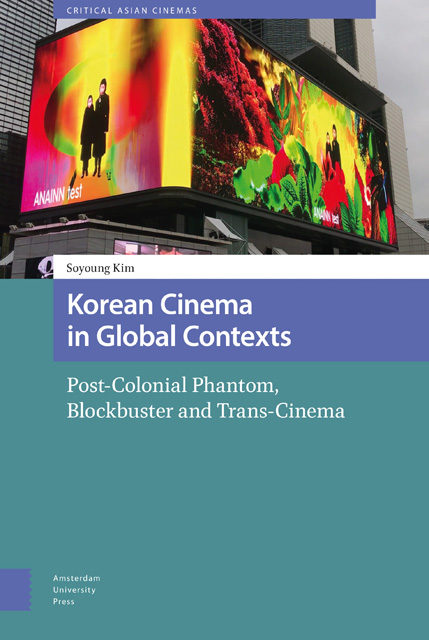Summary
Keywords: trans-cinema, postcolonial archive, cine-mania, inter-Asia, trans-Asia screen culture, comparative film studies
With the benefit of hindsight, it strikes me as quizzical – how could I have set out to conceptualize “Korean cinema” in English, at a time when Korean cinema was still unknown in the Anglophone world? In between writing and editing more than thirteen books in Korean on the issues of gender, colonial modernity and cine-media, I also wrote essays in English, initially to dialogue with friends including the late Paul Willemen and Chris Berry, and then to contribute to Inter-Asia Cultural Studies and other journals. Produced over two decades, the essays collected here do not appear in the chronological order of their publication. Instead, they are organized thematically. This introduction offers a context to bring out the connections between the essays and also to outline the formation of the South Korean cinema culture that was triggered by the cultural turn after the people's movement, which ushered in democracy at the end of the 1980s.
When I returned to Seoul from New York to research my PhD thesis proposal in 1993, I was trying to conceptualize “colonial modernity” and its effects on Korean cinema during the Japanese colonial occupation (1910- 1945). I searched for available films, but there were none in the Korean Film Archive. When I brought up my interest in Korean cinema for my PhD thesis, my advisor understandably told me that it would be impossible to write a thesis about an unknown cinema on which there was almost no scholarship in English. That was even before I confessed that there were no colonial period films available in the archive. However, in stark contrast to the empty shelves at the archive, Korean film culture, energized by an emerging cinephilia, was about to take off around 1995 with new filmrelated institutions, magazines and journals. I was asked to be involved with founding the School of Film and Multimedia at the Korea National University of Arts, where I set up a Cinema Studies Department. The Busan International Film Festival was launched in 1996. In 1996, I was involved as a founding programme director for the Seoul International Women's Film Festival and a founding co-programmer for the Jeonju International Film Festival.
- Type
- Chapter
- Information
- Korean Cinema in Global ContextsPost-Colonial Phantom, Blockbuster and Trans-Cinema, pp. 11 - 22Publisher: Amsterdam University PressPrint publication year: 2022

